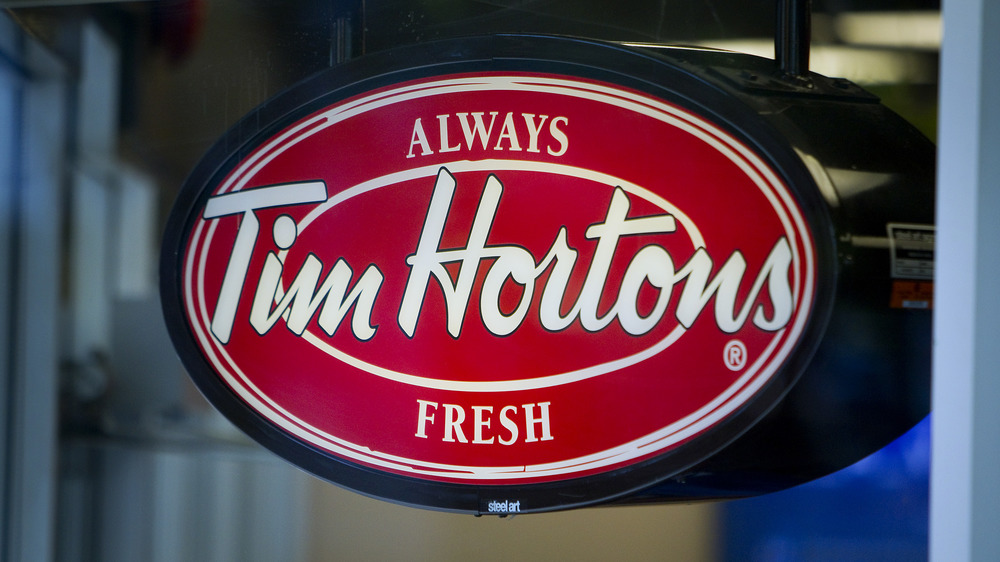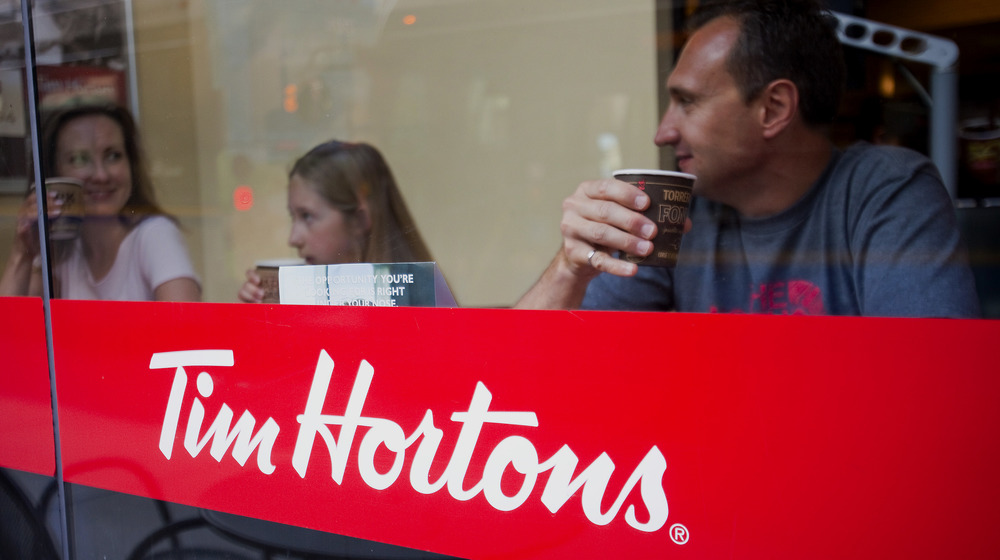Tim Hortons Doesn't Get Along With Its Franchisees. Here's Why
In 2017, American- and Canadian-based Tim Hortons franchises banded together to form the Great White North Franchisee Association (GWNFA) in Canada and the GWNFA USA in the United States. The purpose of these organizations, as Canadian Franchise Magazine reported, was to represent the franchisees' concerns; they filed a lawsuit against Restaurant Brands International (RBI), the corporate owners of the Tim Hortons brand. "Since taking ownership," the GWNFA explained, "trust in RBI has disintegrated and it has aggressively imposed changes to the system without consultation and with contempt for the financial well-being of franchisees in the front line."
Later that year, this burst into a second full-on class action lawsuit for $850 million. According to the Financial Post, franchisees claimed that RBI had attempted to intimidate the franchisees into leaving the organization. The main tool in their intimidation arsenal was the threat of issuing default notices, which would be a legal seizure of a franchisee's restaurants by the franchisor. RBI explained to the Toronto Star that the threat was in retaliation to the association revealing confidential information.
Threats turned to action in 2018 when RBI stripped four Tim Hortons restaurants from David Hughes, the president of GWNFA, who claimed to CBC that they only acted against people who talked to the press. The information in question was a letter sent by the association's lawyer detailing concerns about how coffee pots had repeatedly shattered and hurt employees. RBI denied that his position with the association had anything to do with it.
The two have continued to struggle ever since
Despite the removal of the GWNFA's head in 2018, the GWNFA USA registered a new lawsuit in 2019 against RBI. This time, as Restaurant Business reported, their complaint focused on how RBI reduced the amount of suppliers with whom Tim Hortons franchisees can work with to only those affiliated with RBI. This effectively increased costs for the already struggling businesses without consent. "They have reached the breaking point and they feel that they are being so overcharged by the supplies that they are required to buy through Tim Hortons or its affiliated company that a lot of them are just working for nothing," Jerry Marks, a lawyer representing GWNFA USA, shared (via The Global News).
Other accusations are that RBI withholds information from its franchisees, misuses advertising funds, and requires franchisees to sell their restaurant back to corporate at a depreciated value at the end of their lease. By creating an environment where they control every cost of franchisees, RBI has changed from a licensing agent to an extractor.
RBI's complaint regarding the GWFNA is noted in a piece by Indigo Digital on why Tim Hortons has been struggling in recent years. The chairman, Daniel Schwarz, lamented that the "negative media created by this group of franchisees" has hurt the Tim Hortons brand. Maybe, but as the piece has also noted, RBI has failed to meaningfully grow Tim Hortons since acquiring it in 2014.

